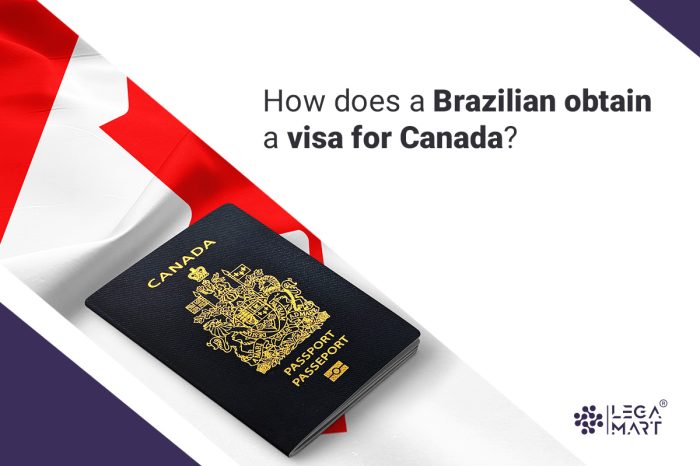Visa Relocation
Visa relocation is the process of relocating a person from one country to another for work or other purposes. The international legal issue associated with visa relocation is the need to comply with the immigration laws of both the host country and the home country. It is important to ensure that the foreign national has the legal right to enter and work in the host country, and that they have the appropriate visa or work permit. Failure to comply with the immigration laws can result in serious legal consequences, such as visa revocation, deportation, and fines. It is also important to ensure that the relocation complies with any relevant employment laws and regulations in both the host country and the home country.
Find best lawyers for Visa Relocation
Issues related to Visa Relocation
Visa types that allow for relocation within a country (e.g. work visas, student visas, family visas)
Many different types of visas allow for relocation within a country. For example, there are work visas, study visas, and family reunification visas. Each type of visa has its own set of requirements and conditions that must be met to qualify.
Work visas usually require an offer of employment from a sponsoring employer. The employer must also demonstrate that they cannot find a qualified candidate from within the country. Work visas typically allow for multiple entries and exits from the country, and some may even allow the holder to change employers while in the country.
How to go about relocating with a visa (e.g. what are the steps involved?)
There are a few things to consider when relocating with a visa. First, you need to ensure your visa allows relocation. Some visas, like tourist visas, do not allow for relocation. But require you to meet certain conditions.
Once you have determined that your visa allows relocation, you will need to figure out where you want to relocate. This can be done by researching the best places to live based on your needs and interests. Once you’ve narrowed down your list of potential destinations, you must consult with the local embassy or consulate to get more information on the requirements for relocating there.

What to do if your visa application is denied?
If your visa application is denied, you can do one of several things:
Reapply, try to get a tourist visa, or find another way to enter the cou
How to find work or study opportunities in a new city or country?
There are several ways to find work or study opportunities in a new city or country. The best way to start is by looking online for job postings or studying the local university or college website. You can also look for job fairs and networking events in your area and talk to locals to get recommendations for good places to work or study.
If you are hoping to work with a specific company, your best bet is to reach out directly and inquire about sponsorship opportunities. Many companies have programs to support foreign workers, and they may be willing to sponsor your visa if they think you are a good fit for their organisation.
Latest Articles
Tell us more about your problem.
Please give a brief description about what it is you need to talk to our lawyers about ?
Frequently Asked Questions
What are the requirements and limitations for visa relocation?
The requirements and limitations for visa relocation vary depending on the type of visa and the country in question. In general, however, there are some common requirements and limitations that apply to most visa relocation situations.
Requirements for visa relocation typically include:
Validity: The existing visa must be valid and not expired.
Eligibility: The immigrant must be eligible for the new visa category they wish to relocate to. This may involve meeting specific qualifications or requirements.
Documentation: The immigrant must provide all required documentation and complete any necessary forms.
Approval: The immigrant must receive approval from the relevant government authorities for the new visa category.
Limitations for visa relocation may include:
Timeframe: The immigrant may have restrictions on when they can apply for a new visa, such as waiting until a certain amount of time has passed since their initial arrival.
Approval process: The approval process for a new visa can take time and is subject to the discretion of the relevant authorities.
Job offer: The immigrant may need to secure a job offer in a new field or industry if they are relocating to work under a different visa category.
Limited time to find employment: Some visas require the immigrant to find employment within a certain timeframe, or else they risk losing their visa status.
Financial requirements: Some visas may require the immigrant to have a certain amount of financial support or savings to cover their expenses during the relocation process.
Online legal platforms can provide guidance on the requirements and limitations for visa relocation, as well as assistance with preparing the necessary documents and completing the application process. By offering support throughout the relocation process, online legal platforms can help immigrants navigate the complexities of visa relocation and increase their chances of a successful outcome.
How can online legal platforms assist immigrants in relocating to a new country on a visa?
Online legal platforms can assist immigrants in relocating to a new country on a visa by providing a range of resources and support, including:
Eligibility assessment: Online legal platforms can provide an eligibility assessment to help potential immigrants determine which visa categories they may be eligible to apply for.
Documentation preparation: Platforms can provide checklists and templates to help immigrants gather the necessary documentation and complete forms correctly.
Application assistance: Online legal platforms can offer assistance with completing visa applications and submitting them to the appropriate government agencies.
Visa tracking: Tracking visa applications through online legal platforms can help ease the anxiety associated with waiting for a decision.
Immigration advice: Online legal platforms can provide immigration advice to help immigrants understand the requirements and limitations for their specific case.
Cultural orientation: Some platforms may offer cultural orientation services to help immigrants adjust to the customs and norms of their new country.
By offering these resources and support, online legal platforms can help immigrants relocate to a new country on a visa with greater confidence and success. They can also help ensure that immigrants comply with local laws and regulations and avoid common pitfalls associated with the visa application process.
What are the legal requirements and criteria for visa relocation, and how can online legal platforms provide guidance on meeting these requirements?
The legal requirements and criteria for visa relocation vary depending on the type of visa and the country in question. However, generally speaking, there are some common requirements and criteria that apply to most visa relocation situations.
Requirements for visa relocation may include:
A valid passport: The immigrant must have a valid passport to enter the new country.
Eligibility for the new visa category: The immigrant must be eligible for the new visa category they wish to relocate to.
Documentation: The immigrant must provide all required documentation and complete any necessary forms.
Approval: The immigrant must receive approval from the relevant government authorities for the new visa category.
Criteria for visa relocation may include:
Relevant qualifications or work experience: The immigrant must have relevant qualifications or work experience that match the requirements of the new visa category.
Good health: The immigrant must meet certain health requirements, such as undergoing a medical examination.
No criminal record: The immigrant must not have a criminal record that would prevent them from being approved for a visa.
Online legal platforms can provide guidance on meeting these requirements by offering resources such as:
Informational articles and guides about the different types of visas available, including eligibility criteria and application requirements.
Online forums or chat support staffed by immigration attorneys who can answer questions and provide advice on specific cases.
Eligibility assessment tools: Tools that assess an immigrant’s eligibility for different visa types based on their qualifications and work history.
Document checklists and templates: Checklists and templates that simplify the process of gathering and submitting required documentation.
Sample letters and other materials: Materials to help applicants demonstrate compliance with local laws and regulations.
By providing these resources, online legal platforms can help potential immigrants understand the requirements and criteria for visa relocation and increase their chances of success.
How can international entrepreneurs and businessmen relocate to the UK or China for business purposes?
International entrepreneurs and businessmen can relocate to the UK or China for business purposes through various visa programs. These include:
Tier 1 (Entrepreneur) visa in the UK: This visa is for entrepreneurs who want to start a new business or take over an existing one in the UK. To apply, the entrepreneur must have access to at least £50,000 in funds and meet other eligibility criteria.
Tier 1 (Investor) visa in the UK: This visa is for high net worth individuals who want to make a substantial financial investment in the UK. To apply, the investor must have access to at least £2 million in funds and meet other eligibility criteria.
Business visit visa in the UK: This visa is for entrepreneurs and businessmen who want to visit the UK for business-related activities, such as attending meetings or conferences.
Business M visa in China: This visa is for foreigners who are visiting China for commercial and trade activities. The visa is valid for up to 90 days and can be extended if necessary.
Work Z visa in China: This visa is for foreigners who have been offered employment by a Chinese company. To apply, the employer must obtain a work permit notification letter from the local Human Resources and Social Security Bureau.
What visas are available for temporary or long-term relocation to the UK or China?
There are several visa options available for temporary or long-term relocation to the UK or China. Here are some of the most common visas:
For the UK:
Tier 2 (General) Visa: This visa is for skilled workers who have a job offer from a UK employer and meet certain eligibility criteria, including English language proficiency and minimum salary requirements.
Student Visa: This visa is for students who want to study at a UK educational institution. The visa is valid for the duration of the course of study and can be extended if necessary.
Visitor Visa: This visa is for individuals who want to visit the UK for tourism, business, or medical treatment purposes. The visa is typically valid for up to 6 months and can be extended if necessary.
Family Visa: This visa is for individuals who want to join their family members in the UK. Eligibility criteria vary depending on the type of relationship with the UK resident.
For China:
Work Z Visa: This visa is for foreigners who have been offered employment by a Chinese company. To apply, the employer must obtain a work permit notification letter from the local Human Resources and Social Security Bureau.
Business M Visa: This visa is for individuals who want to visit China for commercial and trade activities. The visa is typically valid for up to 90 days and can be extended if necessary.
Student Visa: This visa is for students who want to study at a Chinese educational institution. The visa is valid for the duration of the course of study and can be extended if necessary.
Family Reunion Visa: This visa is for individuals who want to join their family members who are Chinese citizens or permanent residents.












